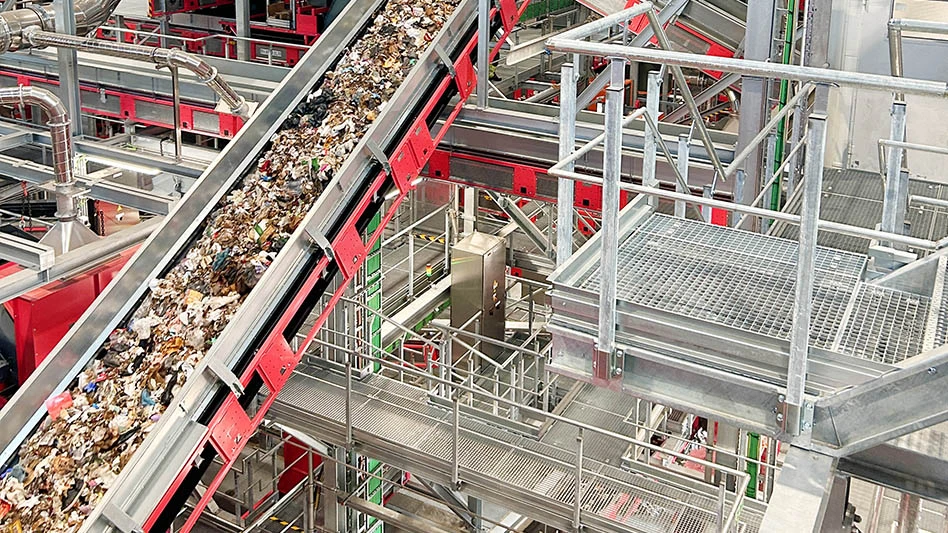
This article was originally published in the Fleet Manager's Manual and adapted for waste management professionals. Download your free copy to read all of Fleetio’s conversations with fleet industry experts.
In the waste management industry, fleet downtime can be more than just an inconvenience—it can lead to significant operational delays, increased costs and unhappy customers. Managing a fleet of waste collection trucks, each with its own set of challenges, requires not just adopting new technologies but doing so in a way that ensures success. Tom Rowlings, assistant fleet manager for the city of Cambridge, Massachusetts, department of public works, offers valuable insights into how waste management fleets can navigate this process effectively.
Understand the Unique Needs of Your Fleet
Before diving into any new technology, it’s crucial to assess the specific needs of your waste management fleet. Waste management involves a wide range of vehicles, from refuse trucks to recycling haulers, each with unique operational demands.
“It’s not just about adding new tech,” Tom emphasized, “it’s about ensuring that it fits into the specific operations of your fleet. Otherwise, it’s just another tool that collects dust.”
Choose the Right Technology
Selecting the appropriate technology is critical. For waste management fleets, consider tools that can integrate seamlessly with your existing systems, such as route optimization software, telematics and maintenance management platforms. Tom shared an example where a GPS tracking system was integrated into their fleet management software, which resulted in a 20 percent increase in route efficiency within six months.
Key Considerations When Selecting Fleet Technology
● Usability: Opt for technology that is intuitive and easy to use. “Our drivers didn’t need another complicated system. The tech had to be something they could learn quickly,” Tom noted.
● Integration: Ensure the new system can integrate with your current software, such as GPS tracking and fleet management systems.
● Scalability: Choose a solution that can grow with your fleet.
Engage Your Team Early
Successful technology adoption hinges on team buy-in. Waste management operations are often complex, with tight schedules and demanding physical work. Introducing a new technology can disrupt established workflows if not managed properly.
Strategies for Engagement
● Involve End-Users in the Selection Process: “We brought our drivers and mechanics into the discussion early,” Tom recalled. “Their feedback was crucial in selecting a system that actually improved their workday.”
● Tailor Training Programs: Develop training that addresses the specific needs of your team. For instance, mobile-based training may be more effective for drivers constantly on the move.
Set Clear Expectations
It’s essential to set realistic and clear expectations from the outset. Waste management fleets operate under strict schedules, and any downtime can lead to missed pickups and customer dissatisfaction.
Steps for Setting Clear Expectations
● Develop a Timeline: Outline a realistic timeline for implementation, including training and troubleshooting periods.
● Communicate with Leadership: Ensure that management understands the time and resources required for successful implementation. “We had to make it clear that initial slowdowns during training would pay off in efficiency gains down the line,” Tom noted.
Learn from Past Mistakes
Learning from previous technology rollouts can prevent repeating the same mistakes. Tom shared an instance where the lack of adequate training led to underutilization of a new fleet management system.
“We thought the system would be intuitive, but without proper training, it became a burden rather than a tool,” he said.
Use those lessons to inform your current approach.
Common Pitfalls of Software Adoption
● Inadequate Training: Lack of thorough training can lead to improper use of the technology.
● Poor User Experience: If the system is not user-friendly, it may face resistance from the team.
Monitor and Adjust
After implementation, continuous monitoring is essential to ensure the technology is delivering the expected benefits. Regular feedback from your team will help identify areas that need adjustment.
Monitoring Tips
● Solicit Feedback Regularly: Create channels for your team to provide ongoing feedback on the technology. “We had weekly check-ins after the rollout to address any issues quickly,” Tom shared.
● Adjust Processes as Needed: Be open to making adjustments based on the feedback received.
Finding Success in Fleet Software
Adopting new technologies in waste management fleets can significantly enhance efficiency and service delivery. However, success requires careful planning, clear communication and ongoing support. By involving your team, setting realistic expectations and continuously monitoring progress, you can ensure a smoother transition and reap the full benefits of your new technology.
Download your free copy of the Fleet Manager's Manual to read more stories from our conversations with fleet managers.
About Fleetio
Fleetio is a fleet optimization platform that helps fleets run, repair and optimize their fleet vehicles. By implementing one platform to maintain your fleet assets, you’re able to manage inspections, work orders, PM schedules, parts inventory and more in a single dashboard. Fleetio finds the data in your everyday operations and turns it into powerful insights so you can drive your fleet forward with confidence.
“We never had any way to calculate vehicle downtime, or even return on investment, or overall cost of doing business. There was never a way to capture that prior to Fleetio.” - Tom Rowlings, city of Cambridge
See how Fleetio can optimize your waste management operations.
Latest from Waste Today
- US Senate backs reduced cuts to EPA
- ELV Select Equipment, Reworld aid NYPD in secure firearm disposal
- Waste Connections announces Q2 results
- Returnity and Cosmoprof to address reusable bag waste
- SWANA releases report on aging WTE facilities
- New economic assessment reveals cost benefits of California’s SB 54
- Premier Truck Sales & Rental opens new facility
- TeknTrash Robotics, Sharp Group partner on humanoid robot pilot





